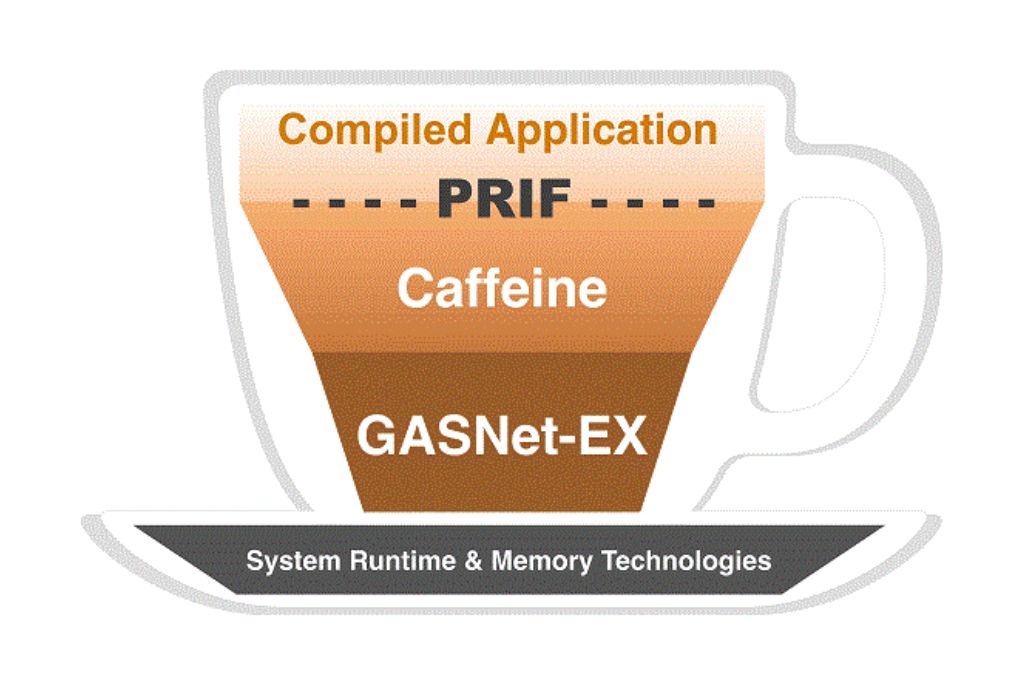Advance
Berkeley Lab’s Caffeine now delivers the first fully tested implementation of the newly defined Parallel Runtime Interface for Fortran (PRIF) — a standards-based framework that supports Fortran programs running in parallel on the world’s fastest supercomputers. Caffeine’s adherence to PRIF ensures compatibility with multiple compilers and links the Fortran application to GASNet‑EX, a high-performance networking library for exascale computing. By combining these capabilities with modern Fortran features, Caffeine now offers a portable, open-source runtime designed to scale from thousands to millions of processors — preserving existing Fortran code investments.
Background
Fortran remains one of the most important languages in high-performance computing, powering applications in climate modeling, nuclear energy, automotive engineering, and nuclear physics. Its speed, reliability, and decades of backward compatibility have kept it relevant. Modern Fortran standards include native parallel programming features, but until now, there has been no open-source runtime library to support them in a compiler-independent way based on an open specification (PRIF). Caffeine fills this gap, lowering barriers for scientists to exploit the full power of today’s and tomorrow’s supercomputers.
Breakdown
Caffeine’s design uses a carefully chosen subset of non-parallel Fortran 2018 features to implement support for the latest multi-image parallel capabilities in Fortran 2023, avoiding compiler-specific code. Unlimited polymorphic procedure arguments remove the need for proprietary data descriptors, improving portability. Fortran 2018’s enhanced C‑interoperability features make it simpler and cleaner to connect to high-performance communication libraries like GASNet‑EX, reducing complexity compared to older approaches. Together, these strategies produce a standards-compliant, compiler-independent runtime that is easier for the Fortran community to adopt, maintain, and extend for exascale computing.
Download the Software:
Contributors:
Dan Bonachea, Katherine Rasmussen, Brad Richardson, and Damian Rouson
About Computing Sciences at Berkeley Lab
High performance computing plays a critical role in scientific discovery. Researchers increasingly rely on advances in computer science, mathematics, computational science, data science, and large-scale computing and networking to increase our understanding of ourselves, our planet, and our universe. Berkeley Lab's Computing Sciences Area researches, develops, and deploys new foundations, tools, and technologies to meet these needs and to advance research across a broad range of scientific disciplines.


